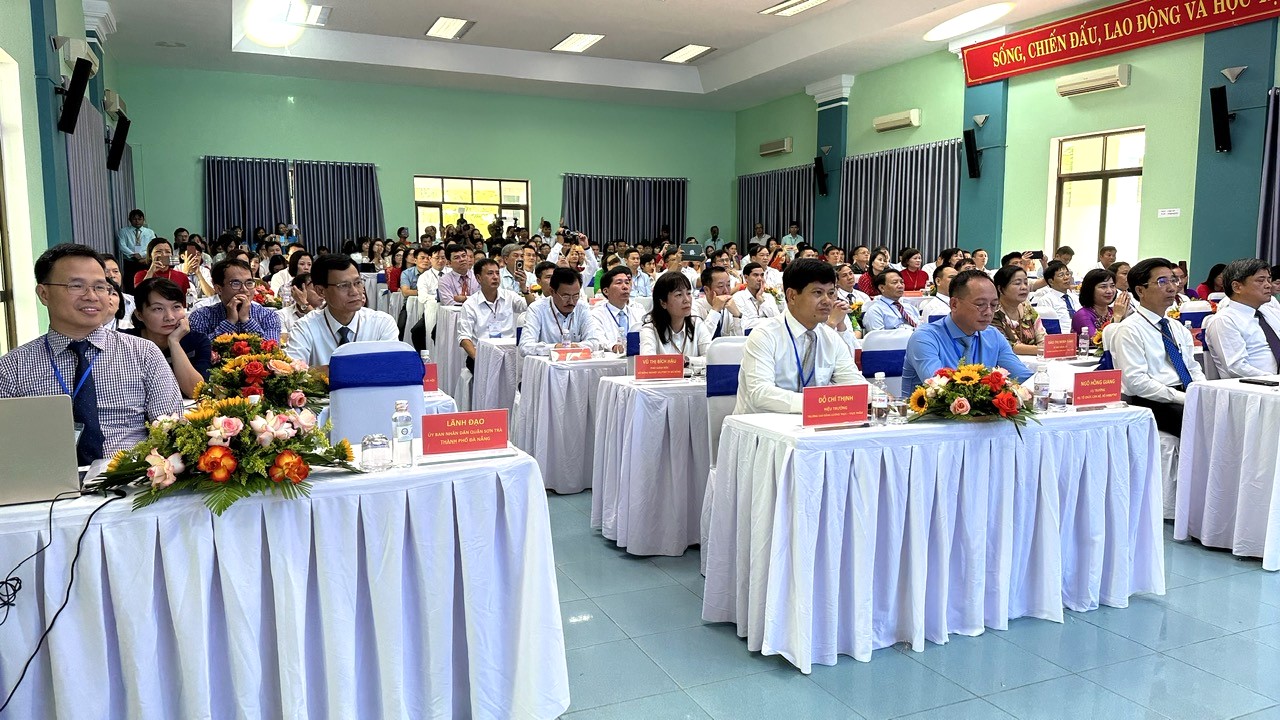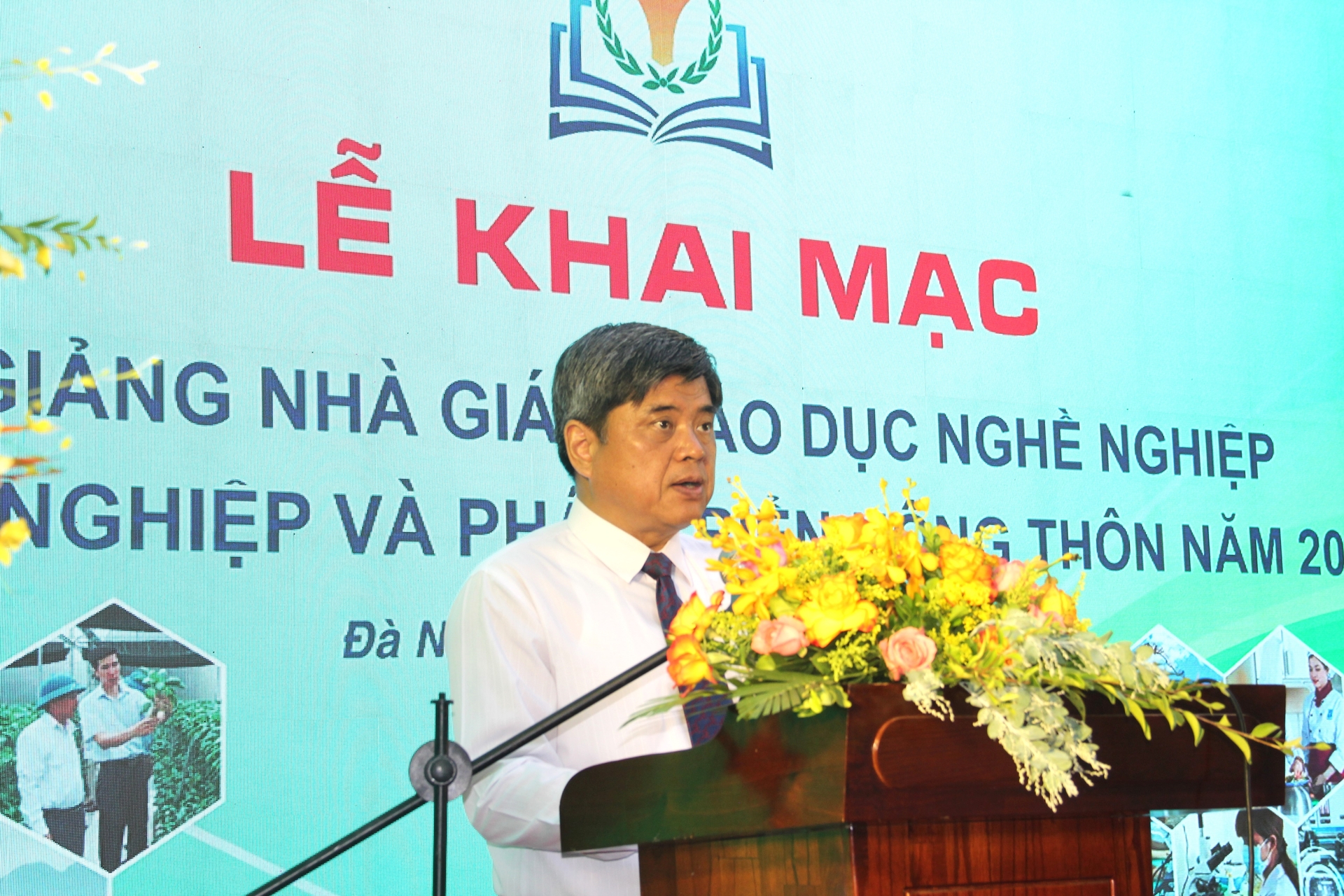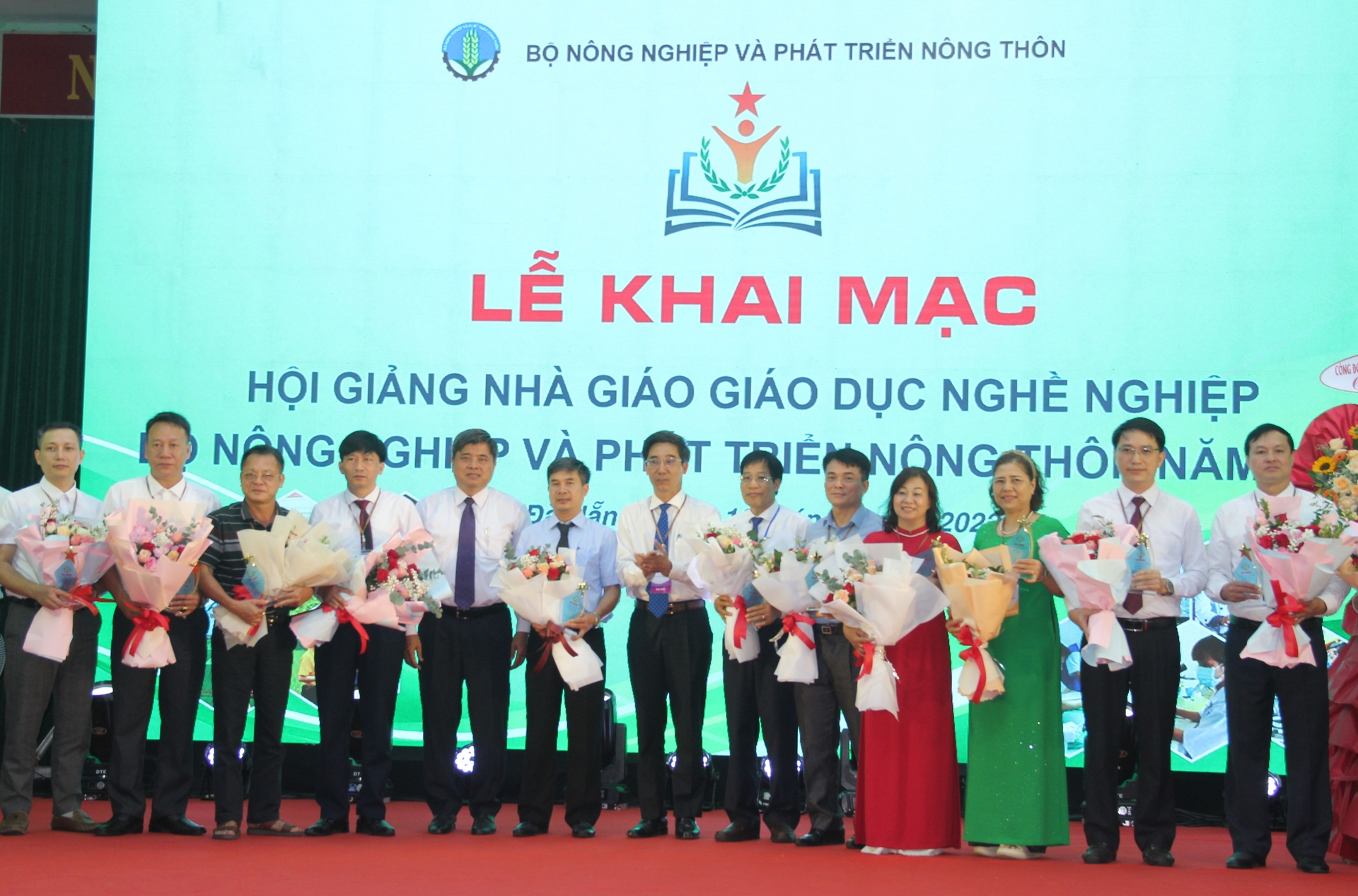May 16, 2025 | 10:39 GMT +7
May 16, 2025 | 10:39 GMT +7
Hotline: 0913.378.918
May 16, 2025 | 10:39 GMT +7
Hotline: 0913.378.918

The Ministry of Agriculture and Rural Development's 2023 Vocational Training Teachers' Conference was attended by 83 educators. Photo: LK
The opening ceremony for the Ministry of Agriculture and Rural Development's 2023 Vocational Training Teachers' Conference was organized at the College of Food Industry in Da Nang on September 10.
The conference featured 83 educators from 28 vocational training institutions under the Ministry of Agriculture and Rural Development, representing 36 professions organized into eight different subcommittees. All educators were selected through multiple levels of conferences and met the required standards.
The Minister of Agriculture and Rural Development decided to establish a Steering Committee consisting of 17 members, representing the functional agencies under the Ministry, the Vietnam Agriculture and Rural Development Union, and experienced principals from Ministry-affiliated institutions. Additionally, the Ministry formed a Conference Review Committee comprising 32 members.
The Ministry of Agriculture and Rural Development's 2023 Vocational Training Teachers' Conference is the largest professional gathering in the vocational training sector of the Agriculture and Rural Development field. Its aim is to stimulate and encourage educators, and provide opportunities for learning, networking, and exchanging experiences to meet the demands of innovation while honoring vocational educators.

Deputy Minister of Agriculture and Rural Development Tran Thanh Nam requested leaders, educators, and vocational training institutions under the Ministry to gradually improve teaching quality to meet practical needs in the Fourth Industrial Revolution. Photo: LK
According to Deputy Minister of Agriculture and Rural Development Tran Thanh Nam, the Ministry of Agriculture and Rural Development and its affiliated vocational training institutions have emphasized training and enhancing the quality of the educators, with a focus on standardizing to meet practical demands.
However, the shifting landscape of the labor market driven by the Fourth Industrial Revolution, and the guidance of the Agriculture and Rural Development sector have presented new requirements and challenges in vocational training and learning.
Consequently, the Party Executive Committee of MARD issued Resolution No. 37 dated May 8, 2023, on innovation and improvement of the effectiveness of high-quality human resource training, meeting the sustainable development requirements of the Agriculture and Rural Development sector by 2025 and outlining the direction to 2030.
Resolution No. 37 underscores the pivotal role of vocational training and human resource development as one of the three strategic breakthroughs. It is a critical prerequisite for raising production standards, labor productivity, competitiveness, and ensuring sustainable development. The primary focus is on providing vocational training for rural laborers, meeting the requirements of restructuring the sector towards value-added activities. The specific objective of the Resolution is to provide vocational training for an average of 1.5 million rural laborers nationwide each year by 2030. The proportion of trained agricultural laborers is expected to reach over 70%.

Leaders of Vocational Training Institutions receiving commemorative emblems from the Steering Committee of the Conference. Photo: L.K
"In order to further enhance its role in training and developing high-quality human resources to implement the agricultural restructuring program, build an eco-friendly agricultural sector, modern rural areas, and smart farmers, I propose leaders, educators, and vocational training institutions under the Ministry to focus on preparing high-level seminar tests in terms of content, expertise, pedagogical methods, practical application, and improving the educators' standards.
Moreover, there is a need to enhance the qualifications of teachers to meet the evolving job requirements effectively. Practical experience and vocational skills tailored to the digital age and modern teaching methods should be prioritized. The integration of core skills and soft skills, along with adaptability to the Fourth Industrial Revolution, are essential aspects of this transformation. On the other hand, we must leverage internal resources, actively cooperate, and connect with organizations and businesses to enhance the contents, supplement teaching and practical equipment to meet labor market demands", Deputy Minister Tran Thanh Nam stated.
The Ministry of Agriculture and Rural Development operates 34 training facilities, including 28 vocational colleges, with an enrollment rate of approximately 6,000 students, 19,000 intermediate-level students, and nearly 30,000 elementary-level students annually. Training fields include agriculture-forestry-aquaculture, mechanical and electrical engineering, food processing, and supplementary specializations serving agricultural and rural economic development.
With activities spanning across multiple key economic regions, vocational training institutions under MARD play a crucial role in training and developing high-quality human resources, ensuring the economic development of both the sector and the local economy.
Translated by Nguyen Hai Long
![Multi-channel, multi-directional Vietnamese agricultural markets: [7] Deep processing makes global reach easy](https://t.ex-cdn.com/nongnghiepmoitruong.vn/608w/files/huytd/2025/05/16/2946-che-bien-sau-chia-khoa-vang-nang-tam-nong-san-viet-tren-ban-do-the-gioi-080603_110-093858.jpg)
(VAN) The application of deep processing technology is helping Vietnamese agricultural products enhance their value, create competitive advantages, and open doors to conquer global consumers.
![Multi-channel, multi-directional Vietnamese agricultural markets: [6] Agri products go online](https://t.ex-cdn.com/nongnghiepmoitruong.vn/608w/files/content/2024/12/10/1-113313_954.jpg)
(VAN) Bringing agri products onto e-commerce platforms is an effective way to build a brand that many businesses, cooperatives, and agricultural production households are doing.

(VAN) Veterinary training should focus on quality, not just quantity. Veterinarians also need more options to pursue specialized training.

(VAN) The veterinary industry needs to be viewed objectively and further invested in to properly demonstrate its role and importance in the new context.

(VAN) The number of veterinarians graduating each year is not enough to meet actual needs, hence a difficult problem for the growing livestock industry.

(VAN) The strategic partnership between Cambodia, the Philippines, Vietnam, and CGIAR ensures that innovative solutions effectively address national priorities for food system development.

(VAN) This was affirmed by the UK Minister of State at the Department for Environment, Food and Rural Affairs during a working session with Deputy Minister Tran Thanh Nam on May 13.